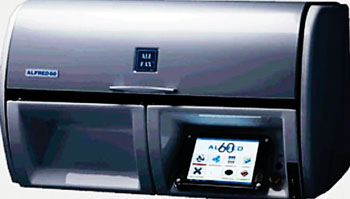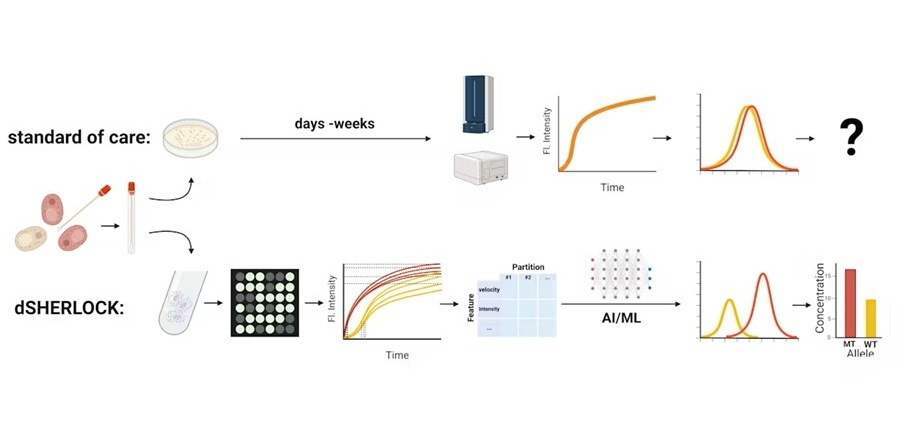Rapid Method Developed for Direct Antimicrobial Susceptibility Testing
By LabMedica International staff writers
Posted on 23 Aug 2016
Rapid identification (ID) and antimicrobial susceptibility testing (AST) of the causative agent(s) of bloodstream infections (BSI) are essential for the timely selection of an appropriate antimicrobial therapy, which may result in a better outcome for patients and contribute to combat the emergence of antimicrobial resistance.Posted on 23 Aug 2016
A method has been established able to provide rapid AST results, further referred to as direct AST. To this aim, an approved system, initially conceived for urine screening, and for AST of bacterial isolates from urine was used. In order to adapt the system to rapid AST from positive blood cultures, two different protocols, protocol 1 (PR1) and protocol 2 (PR2), were evaluated.

Image: The Alfred 60AST bacterial identification system with antibiogram (Photo courtesy of Alifax).
Scientists at the University of Pisa (Italy) and their collaborators inoculated blood specimens from patients admitted to the Pisa University Hospital in the period July-December 2014, into blood culture bottles and transferred to the Bactec FX instrument (Becton Dickinson, Franklin Lakes, NJ, USA) for monitoring bacterial growth. From each patient, only the first positive blood culture (BC) apparently monomicrobial at the Gram staining was included in this study.
BC positive at the Bactec FX instrument were subjected to Gram staining and subcultured onto appropriate solid media. Isolated colonies were identified by MALDI-TOF (Bruker Daltonics, Bremen, Germany) and AST was performed by Vitek 2 (bioMérieux, Marcy l’Étoile, France). Direct AST of bacteria was performed by a Alfred 60AST automated bacterial culture device (Alifax SpA, Polverara, Italy) and carried out using two different protocols, PR1 and PR2. By PR1, bacteria were recovered from positive BC by serum separator tubes or by PR2 after a short-term subculture in liquid medium.
The direct MALDI-TOF method concordantly identified with the current method 97.5% of the Gram-negative bacteria and 96.1 % of the Gram-positive cocci contained in monomicrobial blood cultures. The direct AST by PR1 and PR2 for all isolate/antimicrobial agent combinations was concordant/correct with the current method for 87.8% and 90.5 % of Gram-negative bacteria and for 93.1% and 93.8 % of Gram-positive cocci, respectively. In particular, 100% categorical agreement was found with levofloxacin for Enterobacteriaceae by both PR1 and PR2, and 99.0% and 100 % categorical agreement was observed with linezolid for Gram-positive cocci by PR1 and PR2, respectively. There was no significant difference in accuracy between PR1 and PR2 for Gram-negative bacteria and Gram-positive cocci.
The authors concluded that their newly described method seems promising for providing accurate AST results. Most importantly, these results would be available in a few hours from blood culture positivity, which would help clinicians to promptly confirm or streamline an effective antibiotic therapy in patients with bloodstream infections. The study was published on August 12, 2016, in the journal BMC Microbiology.
Related Links:
University of Pisa
Becton Dickinson
Bruker Daltonics
bioMérieux
Alifax













